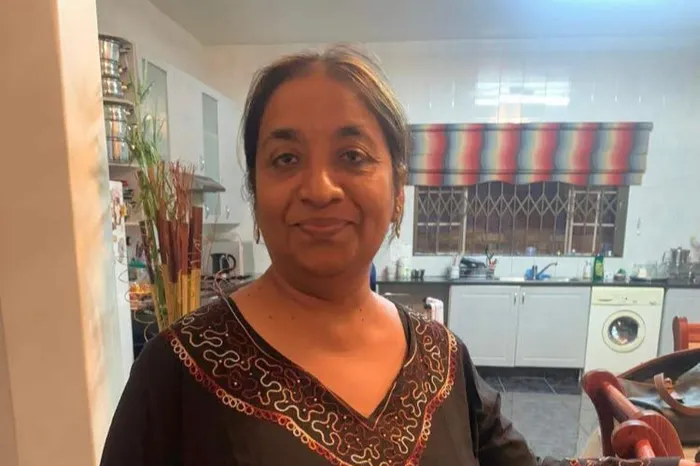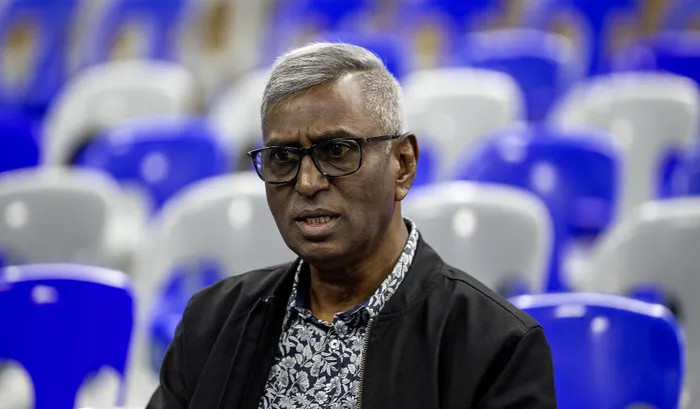‘Tembisa looting betrayed Deokaran’

Babita Deokaran, a courageous whistle-blower, was tragically murdered in August 2021 for exposing corruption within the Gauteng Department of Health, revealing R850 million in suspicious payments at Tembisa Hospital.
Image: Supplied
“WE ARE very disappointed and angry at the fact that she laid down her life, and all that she uncovered was stored on her laptop and cellphone.”
That is how the family of slain whistle-blower, Babita Deokaran reacted to the findings of a recent Special Investigating Unit (SIU) interim report that more than R2 billion was looted from Tembisa Hospital.
Deokaran, who was a Gauteng Department of Health official, uncovered around R850 million in suspicious payments at Tembisa Hospital.
She was killed in August 2021 for exposing this corruption, implicating at least 15 current and former employees.

Bishop Tony Haripersadh, brother-in-law of slain whistle-blower Babita Deokaran, reflects on the family's ongoing struggle for justice and accountability in the wake of alarming findings from the SIU report on Tembisa Hospital corruption.
Image: Leon Lestrade / Independent Media
Six men convicted of her murder were sentenced earlier this year, but the mastermind behind the hit has not been caught.
Babita’s brother-in-law, Bishop Tony Haripersadh, believes that the authorities and law enforcement are not concerned about finding the mastermind behind her murder.
“The family is very saddened and hurt. They say time will heal, but for us, time is not healing, because it's four years now, and it’s still like the first day that we lost her,” he said.
Haripersadh said they are disappointed with the SIU report finding that funds taken had risen from R850 million at the time of her death to R2 billion.
He said that investigating officials could have discovered clues and identified individuals in the report had they examined her devices.
“We are very disappointed and angry at the fact that she laid down her life, and all that she uncovered was stored on her laptop and cellphone.”
Haripersadh, a former government accountant of over 10 years, stated that if action had been taken sooner, “a lot of the money that was taken, about R1.2 billion after her death, could have been stopped”.
He said the family has mixed feelings about the justice system, unsure if the mastermind will be identified.
Rakesh Deokaran, Babita's younger brother, said the SIU’s latest findings are extremely alarming.
Deokaran said the increase in looted funds to R2 billion is not just a statistic; it represents the scale of betrayal of the public trust.
He said this doubling highlights how corruption during the Covid-19 procurement period was far more widespread than initially revealed.
“What is especially heartbreaking is that the looting appears to have continued even after Babita’s death,” he said.
Deokaran said this confirms that those involved were emboldened by a culture of impunity, where whistle-blowers could be silenced and corruption could thrive without consequence.
“It tells us that the rot was deeper than anyone wanted to admit, and it calls for urgent accountability from the highest levels.”
He said the SIU report is not just an audit of financial misconduct; it is a roadmap to justice if taken seriously.
It provides the evidence needed for prosecutions and should be used by law enforcement as a foundation for dismantling corruption networks, he added.
“Too often reports gather dust while the guilty continue as if nothing happened. This must not be the case here. For Babita’s memory, and for the thousands of South Africans who rely on public healthcare, the SIU findings must translate into real accountability, systemic change, and the recovery of public confidence.”
Cape Times